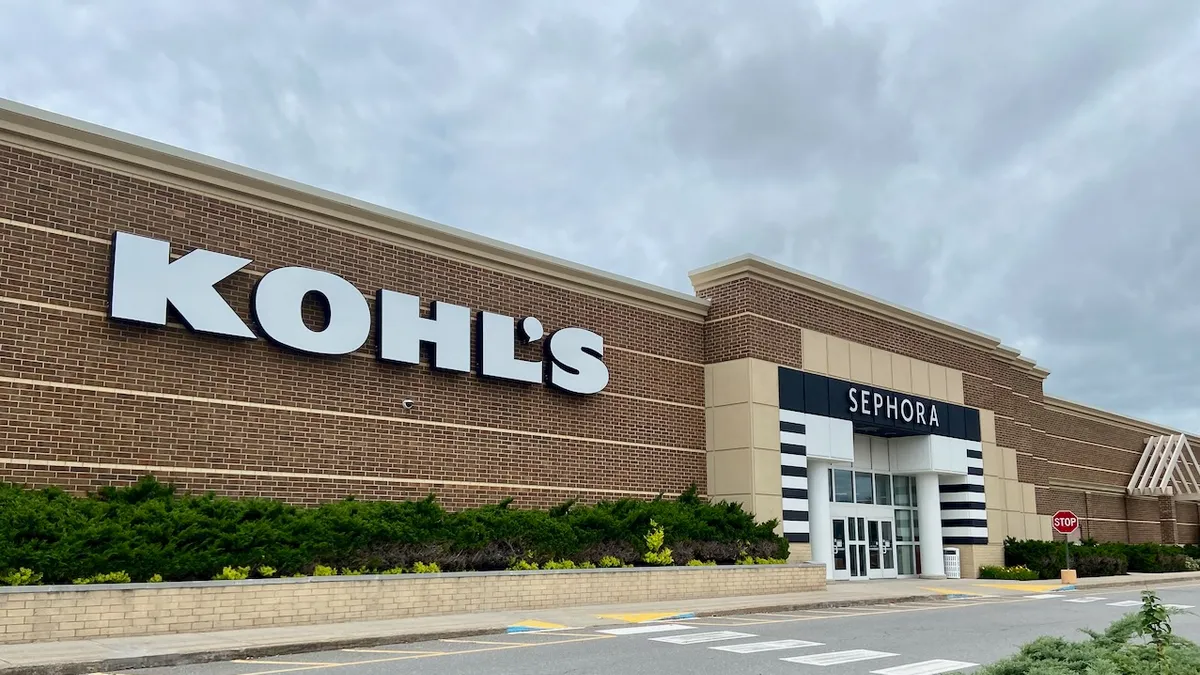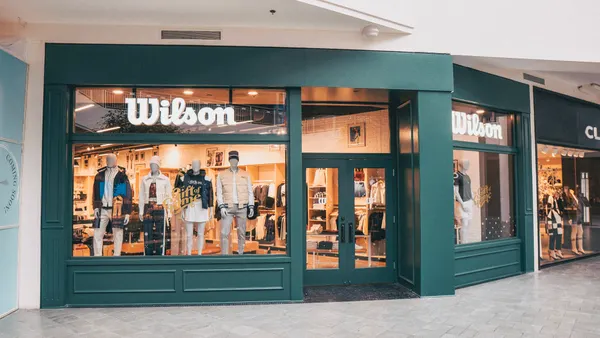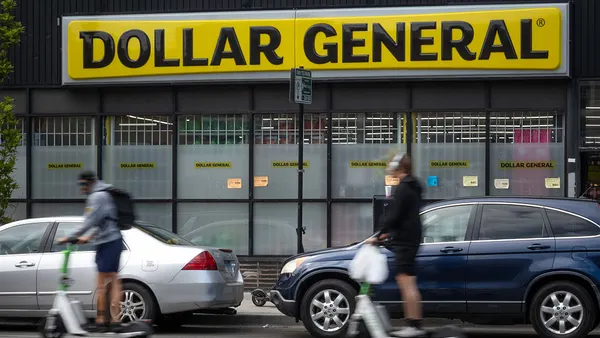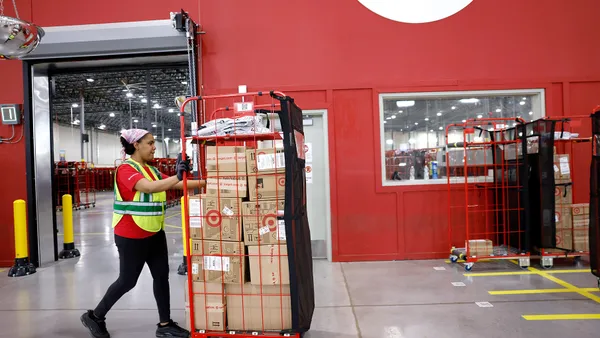Dive Brief:
-
Kohl’s Q3 net sales fell 5.2% year over year to $3.8 billion, with comps down 5.5%. The company’s “other revenue,” mostly its credit card business, fell 6.2% to $211 million.
-
Gross margin expanded 158 basis points to 38.9%, and inventory was down 13%, according to a company press release. Shrink remains elevated but is at expected levels, Chief Financial Officer Jill Timm told analysts Tuesday. Net income declined 39% to $59 million.
-
Kohl’s won’t replace COO David Alves, who left abruptly last week after about six months, CEO Tom Kingsbury said Tuesday. Contrary to Kohl’s previous statement that Alves left to pursue other opportunities, Kingsbury said he eliminated the role so that stores and supply chain teams report directly to him.
Dive Insight:
As it searches for a way out of the doldrums, Kohl’s is making significant changes to its strategy. That includes a shift in focus back to its brick-and-mortar stores.
In a call with analysts Tuesday, Kingsbury, who replaced Michelle Gass as CEO just under a year ago, said the retailer’s efforts online have been undermining its performance. While overall comps were down more than 5% in Q3, store comps in the period fell just 1% and were up slightly year to date. Sales weakness in e-commerce in part reflects online promotions that weren’t available in stores, and the retailer will now offer more consistent pricing across channels, executives said. Digital sales penetration at Kohl's is 32%, with a compound annual growth rate of 8% over the last five years.
“The digital business is really what's bringing us down,” Kingsbury said, adding, “I'm confident about the fact that we are doing well in stores.”
Stores are where Kohl’s customers will find areas dedicated to Sephora, and Kingsbury echoed his predecessor in emphasizing the success of that partnership. In Sephora shop-in-shops opened in the last two years, Q3 beauty comps rose more than 30% and total beauty sales rose more than 70%, driving share in the category, according to an earnings presentation.
The company is turning its spotlight to stores despite what GlobalData Managing Director Neil Saunders calls an atmosphere that is “increasingly tired and devoid of energy.”
“While Kohl’s does not have the capital to spend billions on refurbishments, it needs to inject at least some money into making improvements,” Saunders said in emailed comments. “Others in the market, like Target, have already done this work. Others, such as Walmart, are stepping up their efforts. Against this backdrop, Kohl’s is falling further behind and is simply not providing customers with a modern and engaging store experience. This is losing it customers and market share.”
The re-emphasis on brick and mortar isn’t the only way Kohl’s is now swimming against the tide. The retailer is also actively pursuing more name brands and “changing the mix slightly” away from private label. While Target has enjoyed high-profile success with its owned brands, other retailers including Bed Bath & Beyond and Macy’s have lagged despite hiring Target veterans. In recent years, Kohl’s has been introducing new private labels and revamping existing ones.
“Nick and I have been in New York frequently and really looking for different brands that we can carry,” Kingsbury said, referring to Chief Merchant Nick Jones. “Obviously we are proud of our brand portfolio, and we want to build upon that. But also we want to leverage the marketplace more often, looking for really more interesting product to put on our selling floor than we had previously. So that'll change the mix.”
Kingsbury expressed optimism for the holiday period, saying that many customers would encounter key merchandising changes in stores for the first time. Those include expanding its gift selection, and moving higher-demand items like gifts and home goods to the front of the store.















